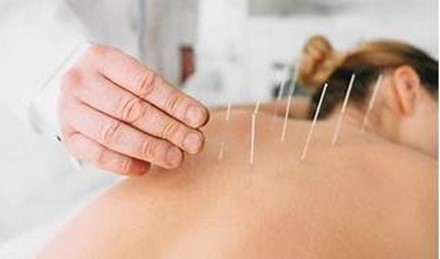A nurse is assessing a client who practices yoga regularly as a form of complementary and alternative medicine (CAM). The nurse should expect that yoga may have which of the following effects on the client's health and wellbeing?
Improving physical fitness, flexibility, strength, and balance
Enhancing the body's natural healing abilities and immune system function
Reducing stress and promoting relaxation and coping skills
All of the above
The Correct Answer is D
Choice A reason: Improving physical fitness, flexibility, strength, and balance. Yoga involves physical poses that stretch the muscles, increase the range of motion, and build strength and endurance. Yoga also challenges the body to maintain stability and coordination, which improves balance and prevents falls.
Choice B reason: Enhancing the body's natural healing abilities and immune system function. Yoga may modulate the immune system by affecting cytokine production, oxidative stress, inflammation, and cellular aging. Yoga may also enhance the body's natural healing abilities by improving blood circulation, oxygen delivery, wound healing, and tissue repair.
Choice C reason: Reducing stress and promoting relaxation and coping skills. Yoga combines breathing exercises, meditation, and relaxation techniques that can lower the levels of stress hormones, such as cortisol and adrenaline, and activate the parasympathetic nervous system, which induces a state of calmness and relaxation. Yoga can also improve mental health by reducing anxiety, depression, and negative emotions, and increasing self-esteem, self-awareness, and coping skills.
Choice D reason: All of the above. Yoga may have all of these effects on the client's health and well-being, as supported by the current web page context and various sources. Therefore, this is the correct answer.
Nursing Test Bank
Naxlex Comprehensive Predictor Exams
Related Questions
Correct Answer is B
Explanation
The correct answer is
B. Biologically based therapies.
Choice A: Mind-body therapies are CAM practices that use the interaction between the brain, mind, body, and behavior to affect physical functioning and health. Examples include meditation, yoga, hypnosis, and biofeedback².
Choice B: Biologically based therapies are CAM practices that use substances found in nature, such as herbs, foods, vitamins, and dietary supplements. Examples include herbal products, probiotics, omega-3 fatty acids, and antioxidants². Herbal products are classified as biologically based therapies by the FDA¹.
Choice C: Manipulative and body-based therapies are CAM practices that involve the manipulation or movement of one or more parts of the body. Examples include chiropractic, osteopathic manipulation, massage therapy, reflexology, and acupuncture.
Choice D: Energy therapies are CAM practices that involve the use of energy fields. There are two types: biofield therapies and bioelectromagnetic-based therapies. Biofield therapies are intended to affect energy fields that surround and penetrate the human body. Examples include Reiki, therapeutic touch, and qi gong. Bioelectromagnetic-based therapies involve the use of electromagnetic fields, such as pulsed fields, magnetic fields, or alternating current or direct current fields.
Correct Answer is ["A","B","C"]
Explanation
The correct answer is A ,B, and C
Choice A: Pregnancy is a contraindication for acupuncture because some acupuncture points may stimulate uterine contractions or induce labor. These points include LI 4, SP 6, UB 60, UB 67, and sacral foraminal points B 3134.
Choice B: Bleeding disorders are a contraindication for acupuncture because of the risk of excessive bleeding or bruising from the needle insertion. Patients who have hemophilia or are taking anticoagulant medications should avoid acupuncture or use it with caution.
Choice C: Pacemaker implantation is a contraindication for acupuncture because of the potential interference of the electrical impulses from the pacemaker with the acupuncture needles. This is especially true for electroacupuncture, which uses electrical stimulation of the needles.
Choice D: Diabetes mellitus is not a contraindication for acupuncture, but it may require special precautions. Patients with diabetes should monitor their blood glucose levels before and after acupuncture sessions, and avoid needling areas with poor skin condition or neuropathy.
Choice E: Hypertension is not a contraindication for acupuncture, but it may require special precautions. Patients with hypertension should monitor their blood pressure before and after acupuncture sessions, and avoid needling points that may cause a sudden drop in blood pressure, such as LI 4 or ST 36.

Whether you are a student looking to ace your exams or a practicing nurse seeking to enhance your expertise , our nursing education contents will empower you with the confidence and competence to make a difference in the lives of patients and become a respected leader in the healthcare field.
Visit Naxlex, invest in your future and unlock endless possibilities with our unparalleled nursing education contents today
Report Wrong Answer on the Current Question
Do you disagree with the answer? If yes, what is your expected answer? Explain.
Kindly be descriptive with the issue you are facing.
